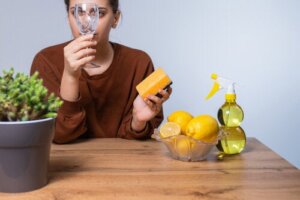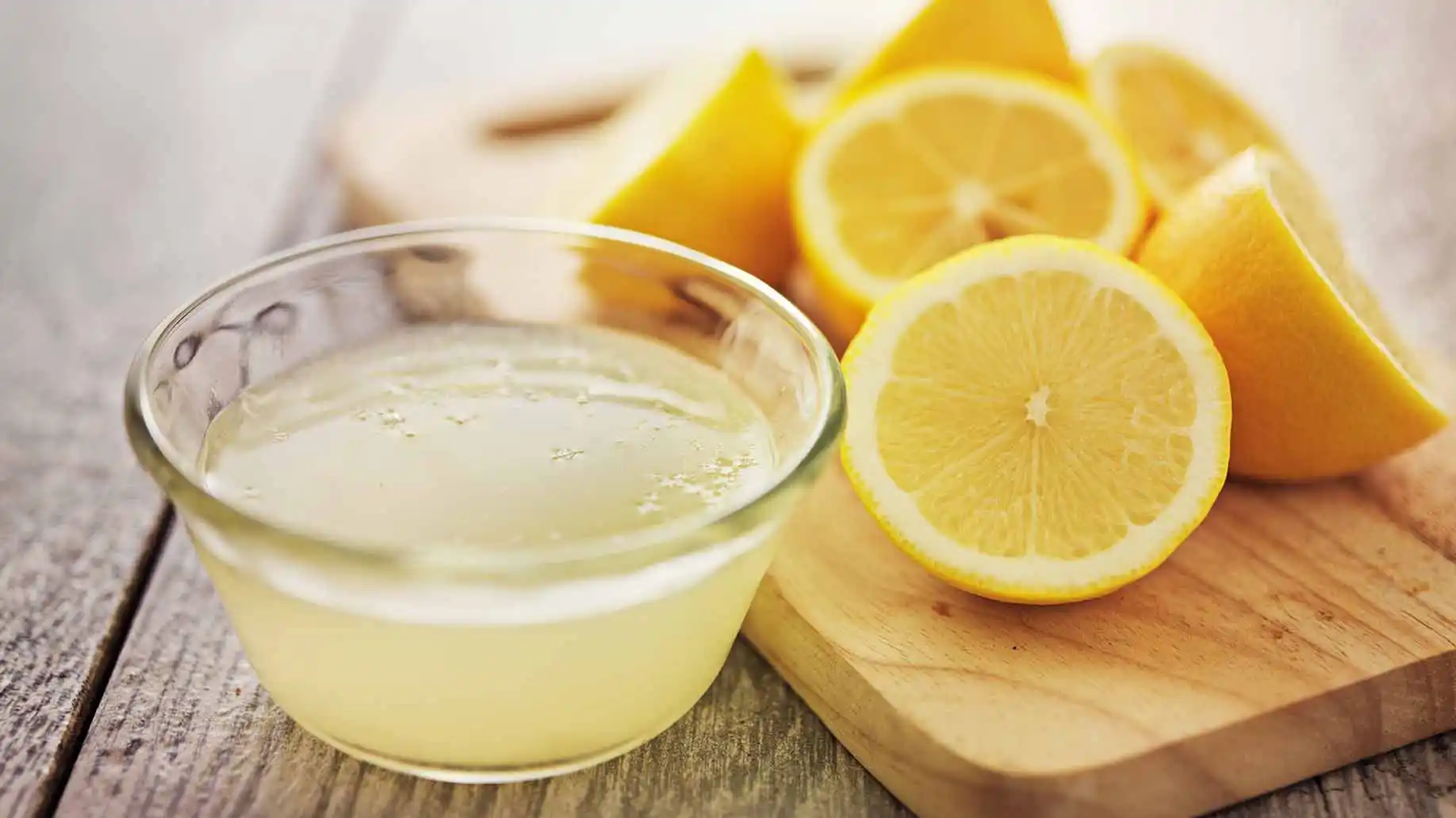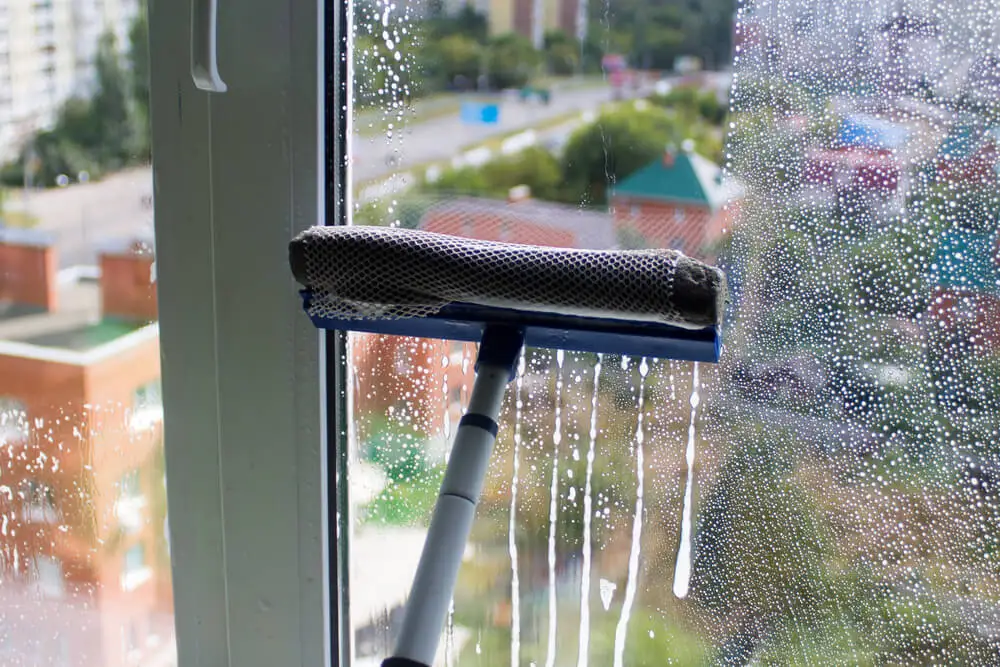Try These 10 Ideas for Using Lemon in Household Cleaning

Lemon is a very appreciated fruit and is often used in different gastronomic preparations, but it also shines in household cleaning. This is because this little sour-tasting fruit has deodorizing and antibacterial properties that make it the natural cleaning product par excellence.
If you want to learn more, keep reading, because we will give you some incredible ideas so you can use lemon in household cleaning. It’s quite inexpensive, so it’s worth knowing how to take advantage of it. Here we go!
How to use lemon in household cleaning? 10 great ideas
To remove grease, to shine certain things, and to leave a delicious aroma… that’s what moms and grandmothers say about the benefits of lemon in cleaning. Well, the truth is that they are quite right: it works for all of this and more!
Before continuing with the ideas on how to use lemon in cleaning your home, it should be noted that its effectiveness as an antibacterial has been proven on different occasions. For example, a study (in Spanish) by the Pan American Health Organization (PAHO) states that lemon juice is a natural biocide useful for disinfecting drinking water.
However, it is also clarified in a university thesis that this method is only effective for the elimination of E. coli, but leaves out other coliforms. So, you don’t make water drinkable with lemon, but we do have data to say that this fruit can protect our health against some other types of infections.
1. It eliminates grease from the kitchen

It’s common that the tiles are filled with grease, especially those closest to the stove. This is due to the fact that, while cooking food, lipid particles spread and stick to the walls. To solve this uncomfortable problem, you can make a grease cleaner in a simple and very natural way.
Just follow these steps:
- Take a medium or large spray bottle and fill it halfway with lemon peels.
- Cover the lemon with white vinegar and let the two products mix for a couple of weeks.
- Use a strainer to separate the liquid from the peels and you’re done. You’ll see how easy it is to get rid of stuck-on grease in your nice kitchen.
2. Deodorize your fridge with lemons
There are many reasons why your fridge smells bad: you have left something inside for too long or you don’t have a moment to do the cleaning as much as you would like. In any case, with a little lemon juice, you can solve this issue.
Do the following:
- Squeeze a few lemons until you get a full bowl of juice.
- You can place it on the bottom shelf of the fridge to work its magic.
It’s also possible to soak a cotton ball with the juice and put it inside the refrigerator. Another option is to cut a lemon in half and leave the fleshy side up, inside a bowl.
No matter which option you choose, you should let it work for a couple of weeks. Change it and you will notice how the bad smell will be a thing of the past.
Of course, it must be said that it works better if you have previously cleaned your entire fridge. With lemon, it will keep longer.
Like this article? We think you may also like to read: 2 Ways to Make Essential Lemon Oil
3. Remove stains and odors from your chopping board
Wooden chopping boards tend to accumulate stains and different odors, a product of everything you chop there. Over time, these stains and odors become harder to remove. But with lemon, you can do it all.
You can do it like this:
- Sprinkle coarse salt on the board and emphasize the more intricate spots.
- Cut a lemon in half and rub it on the board for two minutes.
- Rinse and you’ll notice a big change in the surface. Dry and you’re done.
- If you have a butcher block countertop, then follow this same trick.
4. Clean the oven or microwave
The oven and microwave are two appliances that accumulate a lot of grease inside and it is not always easy to remove it. To do so, there are a number of products that work well, but can be somewhat aggressive with the type of coating they have.
If you don’t want to risk damaging them, then rely on lemon acids to solve the problem. Here’s what you should do:
- Squeeze the juice out of two lemons and add it to a baking dish. Leave the rest of the lemon as well.
- Fill it 1/3 full of water and put it inside the oven at 65 degrees Celsius for 30 minutes or until the water reaches boiling point.
- Turn off, let the oven cool, and use a scouring pad to clean the inside.
5. Remove accumulated gunk from the grater
Box graters are very useful, but they tend to accumulate a lot of gunk in their little holes, since it’s not always easy to wash them. If you have this problem, then consider the following steps:
- Take your grater and grate the lemon on the fleshy side.
- You will have better results if you use one that you have previously squeezed.
- After grating the lemon over the entire surface, let the juice take effect.
- Wash the grater and you will see how clean and shinier it has become.
6. Say goodbye to rust stains
Rust stains on your knives or surfaces form from leaving them wet or damp. These are not so easy to remove and can spread more and more.
Here’s what you can do:
- Take a glass, cup, or pitcher of lemon juice.
- It should be enough to soak your rusty implements for about 10 minutes.
- During this time, the acid in the lemon will loosen the rust.
- Rub each item and rinse, so you will see the results.
You may also like to read this article, too: 5 Health Benefits of Lemon
7. Shine your windows
There’s nothing more effective for cleaning and shining your windows than using a homemade cleaner made from lemon juice. Follow the steps below:
- In a cup of water, you should add 3 tablespoons of lemon juice.
- Add this mixture to a spray bottle to distribute it better.
- Use a piece of newspaper or microfiber to dry. You will have a natural, scratch-free, clean, and shiny finish!

8. Salt and lemon for a shiny toilet
Limescale and daily use of the toilet form annoying rings of gunk inside. This causes it to lose its shine.
To forget about it, follow these steps:
- Put on some gloves to take care of your hands.
- Sprinkle salt on half a lemon or a large slice of lemon.
- Take it and scrub it inside the toilet and you’re done.
- For added effectiveness, you can add a little baking soda.
9. Polish your wooden furniture with lemon and olive oil
If you have some nice wooden furniture, then use a mixture of olive oil and lemon juice to polish it. How can you do this? We’ll tell you below:
- Combine one cup of olive oil and half a cup of lemon juice.
- Make sure you mix enough and get to work. Apply as you would any other product.
Make sure to use this only on wood.
10. Bleach your clothes with lemon
White clothes start to turn yellowish over time, from sweat and from the products you use every day, such as deodorant. Well, the last of the ideas for using lemon in household cleaning is an alternative to bleach:
- Bring a liter of water to a boil (or enough to submerge your garments).
- When it reaches boiling point, turn it off and add a few slices of lemon or juice.
- Taking the respective care, you are going to place your presses and leave them there for a while.
- Increase the results by adding a tablespoon of baking soda.
- Wash in the traditional way and that’s it.

As you can see from all of these examples, there are many ways to use lemon in your home cleaning. In fact, you can practically use lemon in household cleaning on almost anything to disinfect, add shine, restore whiteness and remove rust.
We encourage you to give this natural, cheap, and safe product a try!
All cited sources were thoroughly reviewed by our team to ensure their quality, reliability, currency, and validity. The bibliography of this article was considered reliable and of academic or scientific accuracy.
- Apelblat, A. (2014). Citric acid. Springer.
- D’Aquino, Miguel; Teves, Sergio A. El limón como biocida natural para desinfectar las aguas de consumo. Boletín de la Oficina Sanitaria Panamericana (OSP); 117 (4), oct. 1994.
- Reena, R., Sindhu, R., Balakumaran, P. A., Pandey, A., Awasthi, M. K., & Binod, P. (2022). Insight into citric acid: A versatile organic acid. Fuel, 327, 125181.
- Salazar, M.; Rodas, M.; Axpuaca, Y.; Solís, K. Efectividad del método de purificación de agua con limón y luz solar, en contraste con el método de agua clorada. Universidad de San Carlos de Guatemala. 2019.
- Vandenberghe, L. P. S., Rodrigues, C., De Carvalho, J. C., Medeiros, A. B. P., & Soccol, C. R. (2017). Production and application of citric acid. In Current developments in biotechnology and bioengineering (pp. 557-575). Elsevier.
This text is provided for informational purposes only and does not replace consultation with a professional. If in doubt, consult your specialist.








